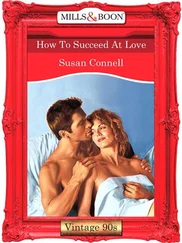Макс Нордау - How Women Love
Здесь есть возможность читать онлайн «Макс Нордау - How Women Love» весь текст электронной книги совершенно бесплатно (целиком полную версию без сокращений). В некоторых случаях можно слушать аудио, скачать через торрент в формате fb2 и присутствует краткое содержание. Жанр: Классическая проза, на английском языке. Описание произведения, (предисловие) а так же отзывы посетителей доступны на портале библиотеки ЛибКат.
- Название:How Women Love
- Автор:
- Жанр:
- Год:неизвестен
- ISBN:нет данных
- Рейтинг книги:5 / 5. Голосов: 1
-
Избранное:Добавить в избранное
- Отзывы:
-
Ваша оценка:
- 100
- 1
- 2
- 3
- 4
- 5
How Women Love: краткое содержание, описание и аннотация
Предлагаем к чтению аннотацию, описание, краткое содержание или предисловие (зависит от того, что написал сам автор книги «How Women Love»). Если вы не нашли необходимую информацию о книге — напишите в комментариях, мы постараемся отыскать её.
How Women Love — читать онлайн бесплатно полную книгу (весь текст) целиком
Ниже представлен текст книги, разбитый по страницам. Система сохранения места последней прочитанной страницы, позволяет с удобством читать онлайн бесплатно книгу «How Women Love», без необходимости каждый раз заново искать на чём Вы остановились. Поставьте закладку, и сможете в любой момент перейти на страницу, на которой закончили чтение.
Интервал:
Закладка:
The steward, who was shivering, turned back, and Abonyi prepared to get into the carriage. At the moment when he had one foot on the step and was half swinging in the air, without any firm hold, Panna sprang out, threw her whole weight upon Abonyi, dragged him to the ground with her, and, almost while falling, with the speed of lightning struck him repeatedly in the breast with a long, sharp, kitchen knife, which she had had in her bosom.
All this had been the work of a few instants. Abonyi had scarcely had time to utter a cry. Janos sat mute with bewilderment on the box, staring with dilated eyes at the two figures on the ground; the steward turned at the shriek and stood as though spell-bound by the spectacle which presented itself. Abonyi lay gasping, with his blood pouring from several wounds; Panna had straightened herself and, throwing down the bloody knife, stood quietly beside her victim. Instantly a great outcry arose, Janos sprang from the carriage and went to the assistance of his unconscious and evidently dying master, the steward rushed up to Panna and grasped her by the arm, which she permitted without resistance, a number of heiducks appeared, Panna was dragged into the doorway, and a flood of curses and threats was poured upon her. While Abonyi was carried into the guard-room under the entrance and laid on a wooden-table, where he drew his last breath before a physician could be summoned, a multitude of violent hands dragged Panna, amid fierce abuse, into the courtyard, while the steward shouted loudly:
"Lads! Bring chains for this monster! Chains I say, put irons on her hands and feet."
Then Panna who, hitherto, had not opened her lips, cried in a resonant voice, while a strange smile hovered about her quivering lips:
"Why, my dear sir, how long have you used chains? Wouldn’t you rather play a game of cards with me?"
The steward’s face flushed scarlet, he shrieked a few orders to his men in a shrill tone, and rushed back into the guard-room to Abonyi.
Panna was shoved rather than led down the steps of a flight of cellar stairs and thrust into a dark, stifling cell, where handcuffs were put on. During this proceeding, she made many sneering speeches:
"Give me a handsomely furnished room, too, like the one the nobleman had! And who will wait on me here?"
"Silence, witch!" cried the heiduck who was chaining her. "The executioner will wait on you when he makes you a head shorter."
"The executioner? Fool, what nonsense you are talking! No executioner will touch me. At the utmost I shall get three months imprisonment. If six months is the sentence given for the murder of an innocent man, surely one can’t get more than three for killing a murderer."
At last Panna was left alone and the iron doors of her cell closed with an echoing sound. The crime naturally created the utmost excitement in the county jail; officials and employees talked of nothing else, and after learning from Janos who the criminal was, the opinion was generally expressed that she must be crazy. Before the examining magistrate, who was informed of the bloody deed in the course of the forenoon, gave Panna an examination, he sent a physician to see her and give an opinion of her mental condition.
The doctor found the young widow lying on the bench, deadly pale and utterly exhausted. She had spent all the power of her soul in the horrible resolve and its execution, and was now as gentle and tearful as a frightened child. She entreated the physician to have the irons taken off; she could not bear them, she would be perfectly quiet; and when he promised this she also besought him to write to her father, whose address she gave, in her place. She begged the latter’s forgiveness for what she had done; she could not help it, there must be justice for gentlemen as well as for peasants. If there was no justice the world could not exist, everything would be topsy-turvy, and people would kill one another in the public streets just as the wild beasts did in the woods. She, too, would atone for the sin she had committed that day, and that would be perfectly just. She also sent a message to the gardener, thanking him for all the kindness and love which he had shown her, and hoping that he might have a happier life than Fate had allotted to her.
The physician talked with her some time longer, and received quiet, rational, somewhat timid replies. At last he went away shaking his head, evidently not knowing what to think of this singular woman, but he succeeded in having the handcuffs removed, and faithfully wrote the letter, as he had promised to do.
Panna was to be brought before the examining magistrate for the first time on the following morning. When the jailer opened the door of the cellar cell, he started back in horror. From the grating in the little window, high up in the stone wall, dangled a rigid human form. Panna had hung herself in the night by tying the strings of her skirt together.
PRINCE AND PEASANT.
The first regiment of dragoon-guards had been waiting idly behind a screen of low bushes in a shallow hollow for more than an hour, to receive the order to advance.
It was an interesting point in the spacious battle-field of Metz, and an important period in that day of August 16th, 1870, which paved the way for the ultimate prevention of Bazaine’s breaking through to Verdun. By rising in the stirrups, or ascending one of the numerous shallow ridges which intersected the meadow, a charming view appeared.
A few hundred paces in the rear lay the little village of Vionville with its slender church-steeple, from whose top floated the flag of the red cross. Several roads bordered with poplars diverged from the hamlet, crossing in straight lines the broad, undulating meadow. In the foreground was a tolerably steep declivity, which at this moment formed the boundary of the German lines. Northward and southward, as far as the eye could reach, extended a ravine several hundred feet wide, at whose bottom a little stream had worn a narrow, winding channel. The western slope was tolerably gentle, the opposite one, on the contrary, was somewhat steep. Beyond stretched a bare plain, with a few church steeples and white buildings, in the distant background. Here the French were apparently drawn up in considerable force.
On the crest of the German hill several batteries were mounted, which maintained a rapid fire with bombs. Small bodies of infantry lay on the ground a short distance in the rear of the artillery. Still farther back was the regiment of dragoons, each man with his horse’s bridle wound around his arm, waiting with weary, somewhat stolid faces, for orders. The battle had evidently been at this point some time. Nearly all the enemy’s shells fell into the ravine, few reached the level ground on the German side, and they, too, thus far, had effected no special injury. Only a broken gun-carriage and two or three holes in the earth which, surrounded by a loose wall of yellow clay, looked like new-made graves, lent the plain something of the character and local colouring of a battle-field. The ear had a larger share in the mighty work of the day than the eye. From the sides, the front, the rear, everywhere, cannon thundered, at a short distance on the right echoed the rattle of a sharp fire of musketry, while the terrible, ceaseless roar which filled the air alternately swelled and sank, like the rising and falling flood of melody of a vast orchestra, during the storm of the pastoral symphony.
A number of officers had assembled on a little mound in front of the regiment of dragoons, whence they were attentively watching the French. Among them a major stood smoking a cigarette and gazing dreamily into vacancy. He was a man a little under thirty, with a slender figure, somewhat above middle height, and a pale, narrow face, to which cold grey eyes, and a scornful expression resting upon the colourless lips shaded by a blond mustache inclining to red, lent a stern, by no means winning expression. In this environment of human beings, amid these excited young men with their healthful, sunburnt faces, he, with his impassive, reserved expression and somewhat listless bearing, looked strangely weary and worn. A woman’s eye gazing at the group of officers would scarcely have regarded him with favour; a man’s would have singled him out as the most intellectual of them all.
Читать дальшеИнтервал:
Закладка:
Похожие книги на «How Women Love»
Представляем Вашему вниманию похожие книги на «How Women Love» списком для выбора. Мы отобрали схожую по названию и смыслу литературу в надежде предоставить читателям больше вариантов отыскать новые, интересные, ещё непрочитанные произведения.
Обсуждение, отзывы о книге «How Women Love» и просто собственные мнения читателей. Оставьте ваши комментарии, напишите, что Вы думаете о произведении, его смысле или главных героях. Укажите что конкретно понравилось, а что нет, и почему Вы так считаете.











